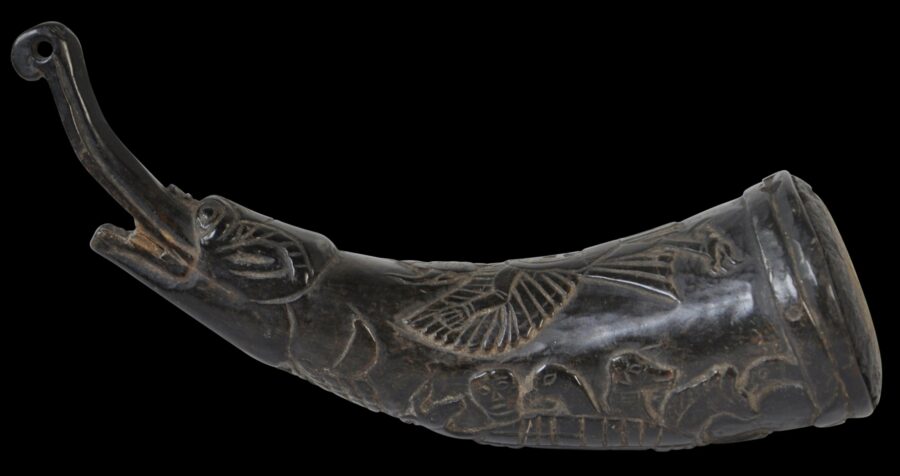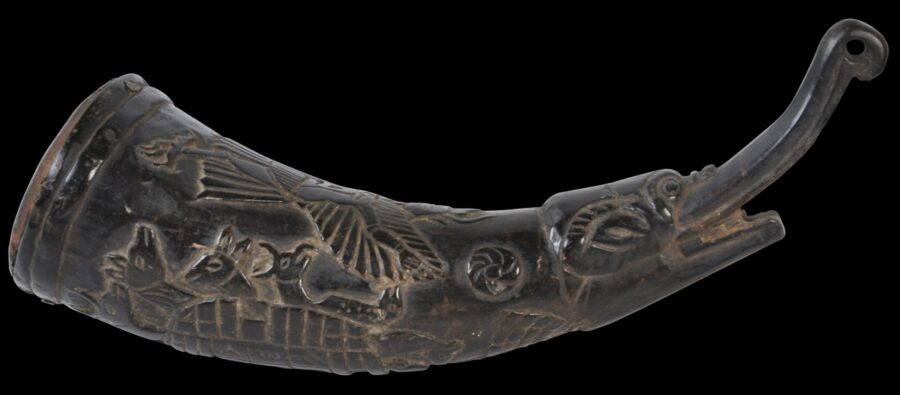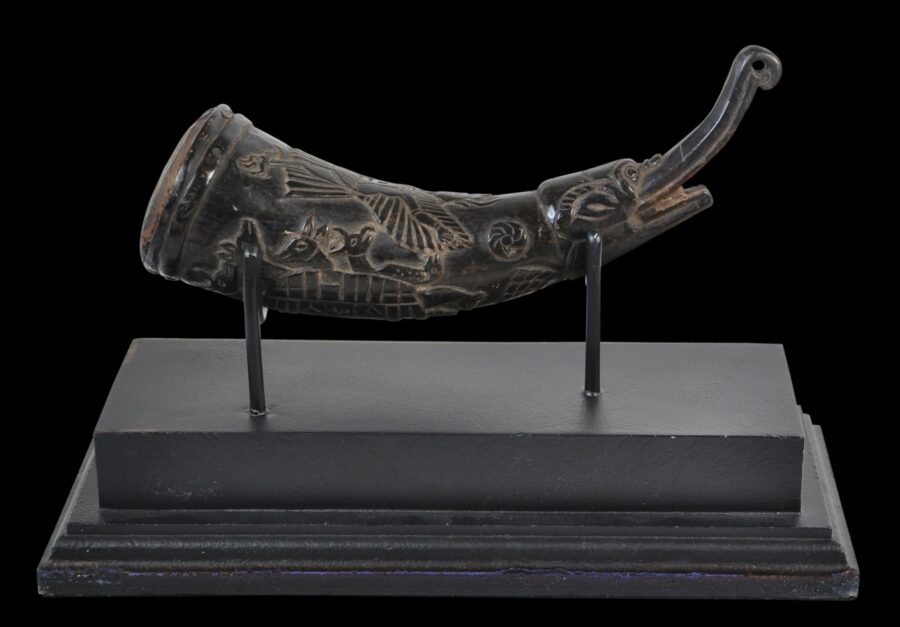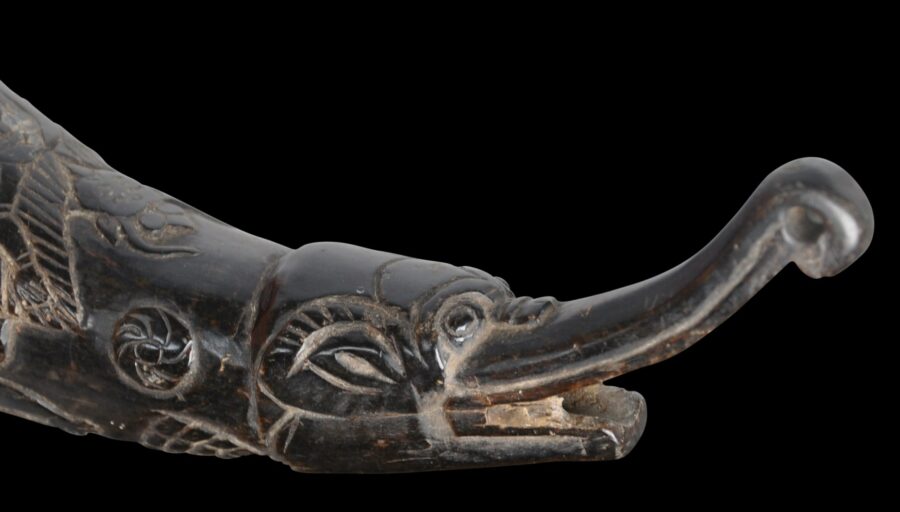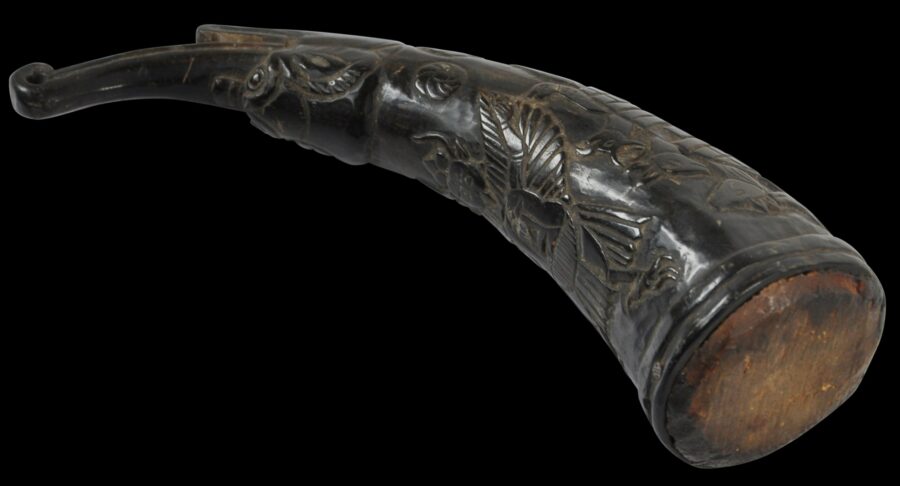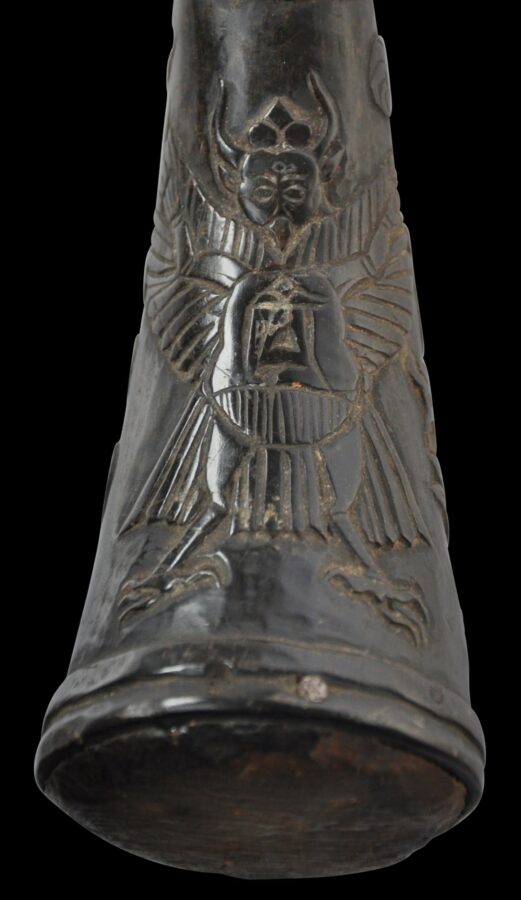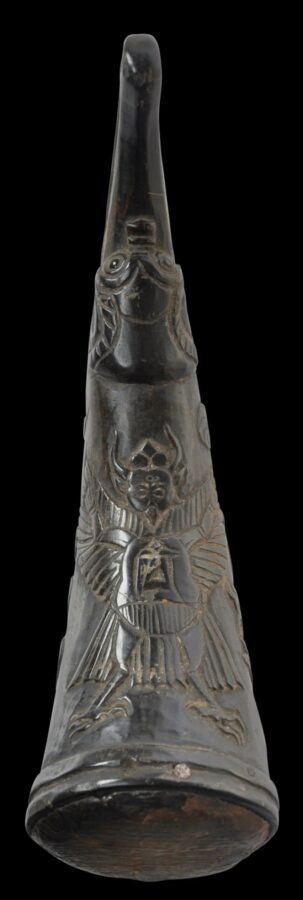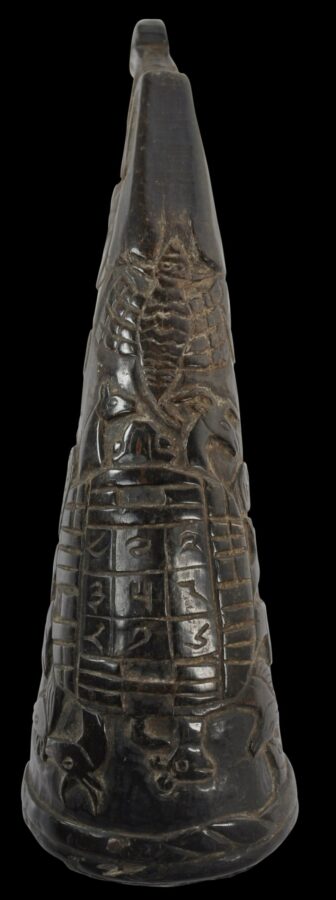Enquiry about object: 8421
Tibetan Carved Horn Ritual Seed Dispenser
Tibet 18th-19th century
length: approximately 19.2cm, width: 5.5cm, weight: 89g
Provenance
UK art market
Carved horns such as this were used to dispense seeds during Tibetan monastic offering rituals. The horn was used to hold seeds – typically mustard seeds which grow in the lower reaches of the Himalayas – for offering into a fire as part of purifying and exorcising fire-offering rituals. The horn was shaken to release the seeds into the fire which was typically contained within a prescribed triangular fire-offering brazier, whilst the practitioner recited cleansing and exorcising mantras.
The tip of the horn has been carved as a makara with an elongated snout with a curled tip. Beneath the snout is an aperture which permits the emission of the seeds.
The remainder of the horn is finely carved with a central Garuda figure on top, and a central tortoise on the underside accompanied by a scorpion and several other creatures. The shell of the tortoise is decorated with squared infilled with lantsa script.
Few extant ritual seed horns are carved with lantsa script. A related example in the Guimet Museum in Paris is illustrated in Beguin (1990, p. 164.)
The horn is in excellent condition. It has a glossy, dark patina and a surface that has been worn smooth from ritual use. The blunt end of the horn has been closed with the original wooden plug.
References
Beer, R., The Encyclopedia of Tibetan Symbols and Motifs,Serindia, 2004.
Beguin, G., Art Esoterique de l’Himalaya: La Donation Lionel Fournier, Musee National des Arts Asiatiques Guimet/Reunion des Musees Nationaux, 1990.
Thurman, R., & D. Weldon, Sacred Symbols: The Ritual Art of Tibet, Sotheby’s/Rossi & Rossi, 1999.


